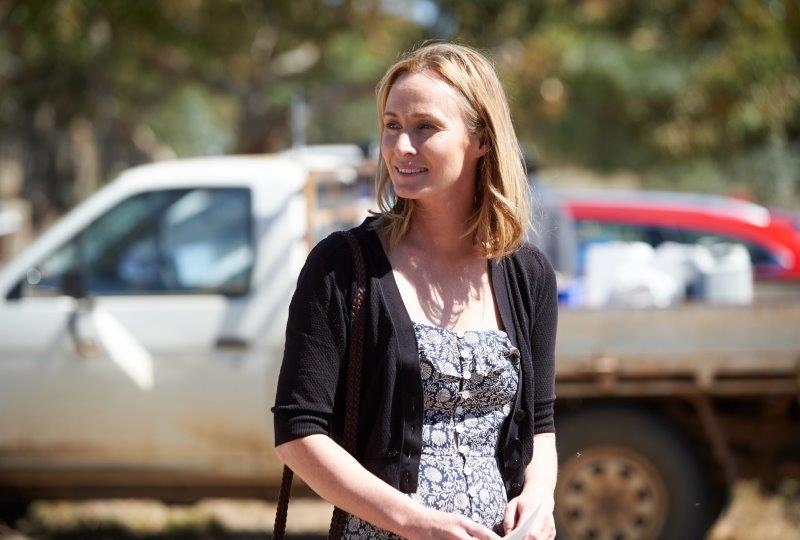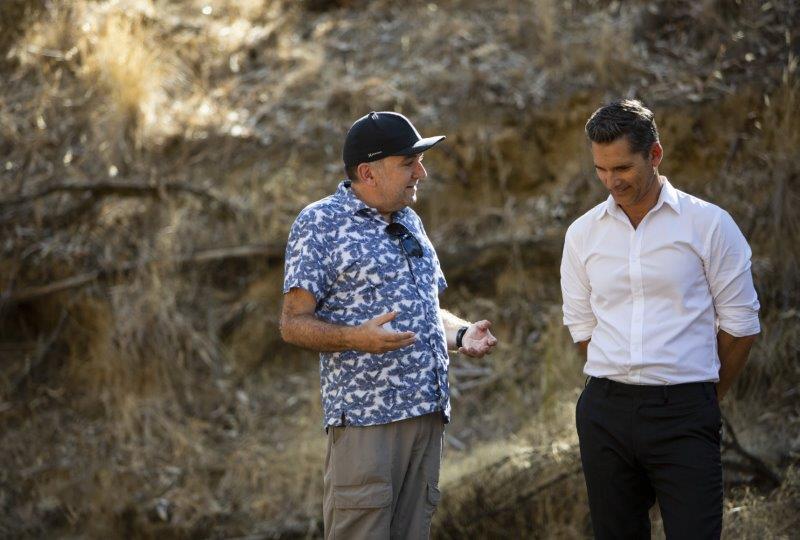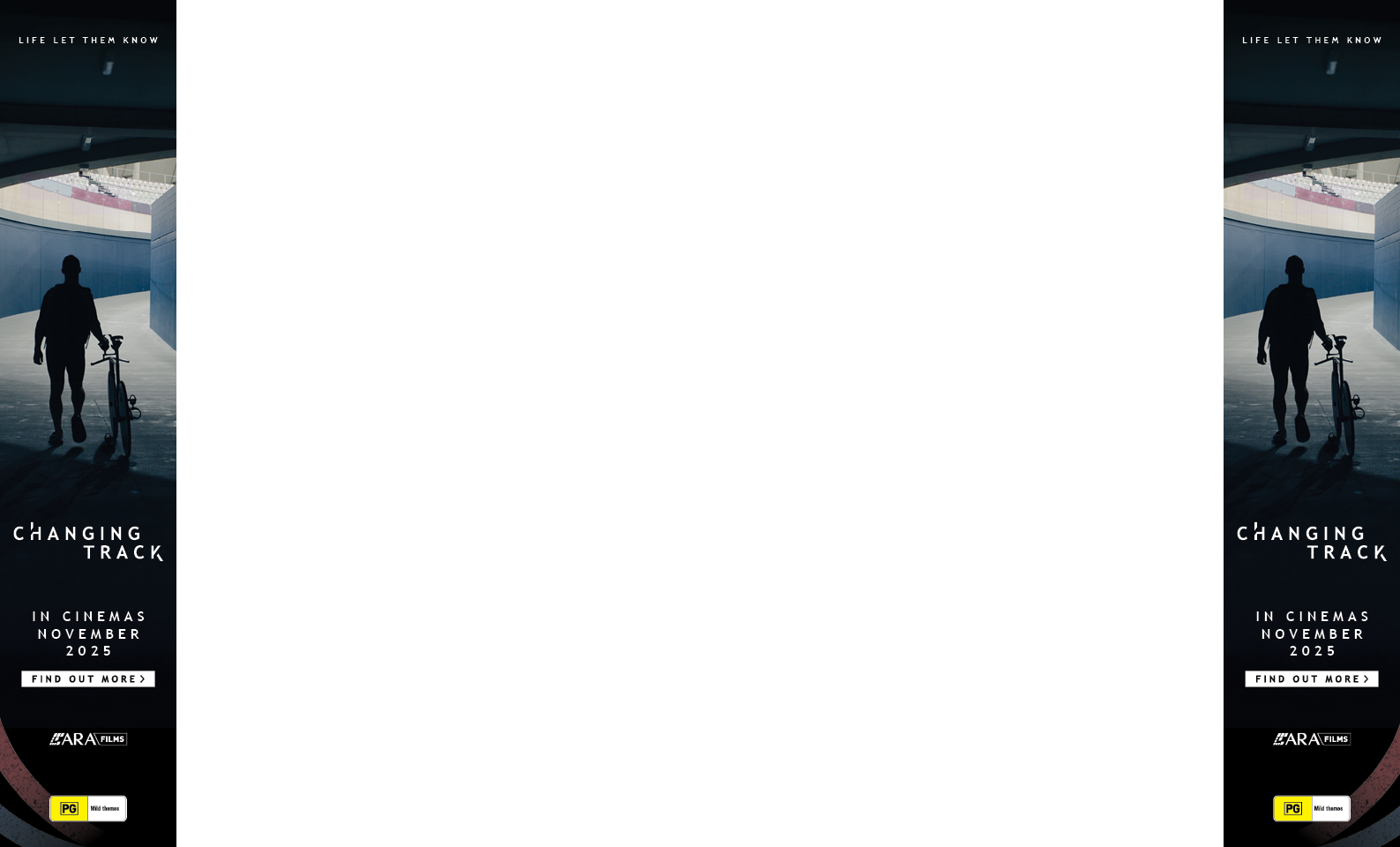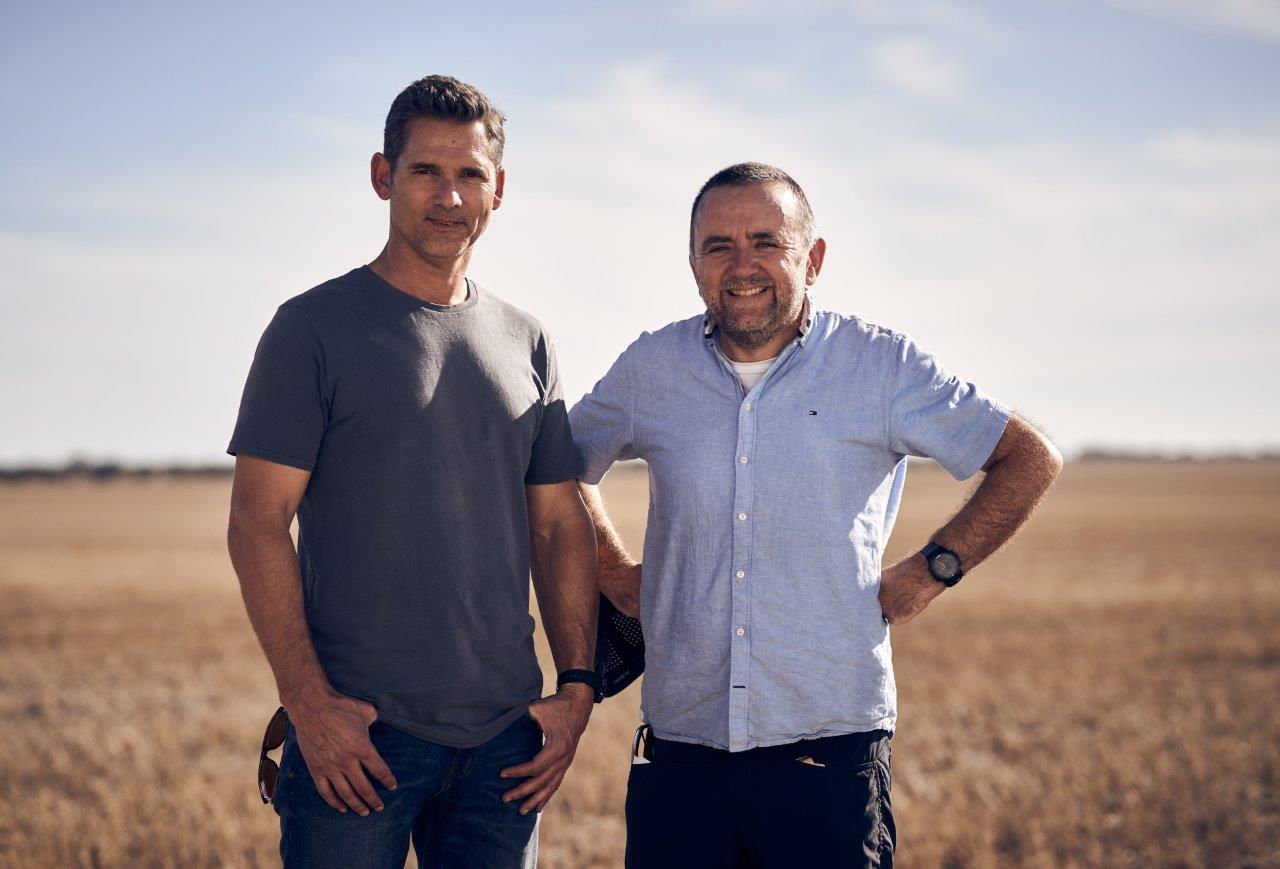by Gill Pringle
The two men last collaborated 12 years ago for Romulus, My Father and, although they share office space in Melbourne, they failed to find another project to work on together until an early manuscript for The Dry showed up on Connolly’s desk.
Based on Jane Harper’s bestseller, Connolly believes The Dry well quench the thirst of Covid-weary Australian cinema lovers.
Bruna Papandrea approached you with Jane Harper’s book, The Dry. Bruna also produced Liane Moriarty’s Big Little Lies which – when transformed to TV – was relocated from its original Sydney setting to Northern California. Was there ever any pressure to take The Dry out of its rural Victoria setting?
Robert Connolly: I think it was always conceived as a feature film to shoot in Victoria, Australia and quite wonderful that is, because that’s where I live, and I have a great affection for that whole part of Australia having grown up in the bush. But I can’t recall Bruna ever bringing that up. I think one of the things that appealed to me so much when I read it was that whole world. I love that world and the landscapes and the cinematic nature of it and I always love that idiosyncratic national cinema travels. And now we have this Australian Noir and these incredible books like The Dry. I’m sure the fundamentals of this story could be relocated somewhere else, but I think there’s something intrinsically Australian about the whole ensemble of characters.
Eric – Joe Klocek plays the younger version of your character Aaron Falk. How did you advise him in playing your younger self?
Eric Bana: Well, he was so beautifully cast and Rob’s attention to detail with Jane Norris, our casting director, and with all of our characters, was so fantastic. I just didn’t want to get in Joe’s way, I wanted him to feel free. And Rob is great at working with young actors and I didn’t want to get involved in that process because the best kind of work is the work that you do when you feel free and we didn’t want Joe to feel like he was being constricted or having to fall into something; he had to find his own young Aaron.

Robert, you’ve put together this lovely cast of relatively unknown actors. Did you think about casting any other flashy names, aside from Eric, as the older versions of the female cast? Cate or Nicole or Rose Byrne, for example?
Robert: Yeah, you always look at all of the established actors and there’s obviously discussions around that but it’s really interesting. My wife, Jane Norris, the casting director for all of my work going back to The Slap and Balibo; we were in London where I was editing my job in the UK and my wife and children came over and we went and saw Sam Mendes’ play, The Ferryman and Genevieve O’Reilly was amazing in it and Jane was like “It’s her!” So, I went back and looked at all of her work and I was captivated by her work on stage and then I spoke to her. I never actually asked her to audition, I just had a chat with her, and Eric and I discussed her, and we were just delighted with her performance, an absolutely extraordinary actor and obviously working at a level like that on stage gave me confidence about her intellectual abilities for this role.
Speaking about the state of Australian cinema, are you, as a filmmaker, finding a silver-lining in Covid in that all the US productions are moving to Australia?
Robert: Yes, it’s a juggle for our local industry balancing the US-studio based film and TV that can shoot in Australia as a destination location and making sure that there’s a very strong local industry making Australian films for the world. I think we’re probably going through a little time of re-orienting a little bit to make sure that balance is there. The big American stuff is great – employment and talent and the escalation of all of that. But now we need to keep an eye on making sure that we have a very strong local industry. Australians are loved internationally, and we’ve launched so many careers, so I think you’ll probably see a calibration of that in the next 12 months or so. But it’s a boon time, there’s so much work, people are working everywhere. It’s a challenge to get a great crew right now interestingly.

Eric, did you spend any time with real life federal agents in order to play this role?
Eric: No, I’d done a little bit of research in that area but we felt that, in this case, Aaron is pursuing something outside of his work parameter to a large degree, and doing it in his private time. And while he is stepping on the toes of the local policeman, it wasn’t one of those situations where he’s in the city and we’re going through protocol procedure as a federal agent. So, it didn’t require the same rigour as that situation would have. It felt more to me that it was more important to try to get a sense of what it would feel like to be that man who ventures into a small country town and starts opening old wounds, and I guess the emotional journey of what that is, that was the more important focus for both Rob and I.
Eric, your wife Rebecca [Gleeson] first turned you onto the book although Bruna gave Robert an early manuscript before it was even published. What was happening in those few months in between?
Eric: I read the book and I don’t think I discussed it with Rob, and then when Rob revealed to me that he was considering directing the adaptation of the book, I said, “Well I read that book and I love it”. And there was this moment between the two of us in the office where it was – well, this could maybe happen. I didn’t realise that he had read the manuscript and he didn’t realise that I had read the book and so that’s the advantage of sharing a workspace where we don’t have the pressure of our day to day business being connected, we just share ideas and thoughts and support each other and it just came out of that sharing of information.

How long have you shared a workspace?
Eric: We’ve shared an office for about ten years, so we don’t have the pressure of making things together, we just share the space and encourage each other – and cancel each other! And when something comes along where we want to work with each other, we do it. Kind of like a great share house.
As a producer Eric, how important was it to showcase this part of Australia?
Eric: It’s a part of Australia and a side of our countryside that we as Australians relate to very much, as opposed to this desolate, red-earth outback that is portrayed in a lot of cinema, and it is how the rest of the world sees Australia. And I feel like this is a more realistic portrayal of how we actually see our bush and how people from the city and those who spend most of their lives between one, two, three, four, five hours from a big city – this is the kind of Australia that we all know. There’s a real sense of calm and peace that comes from the flatness. The first time you come out here, it kind of looks a bit boring until you adjust to it and then it really, really gets under your skin. The sunrises and sunsets out here are spectacular. There’s something really special about it.
The Dry is in cinemas January 1, 2021




